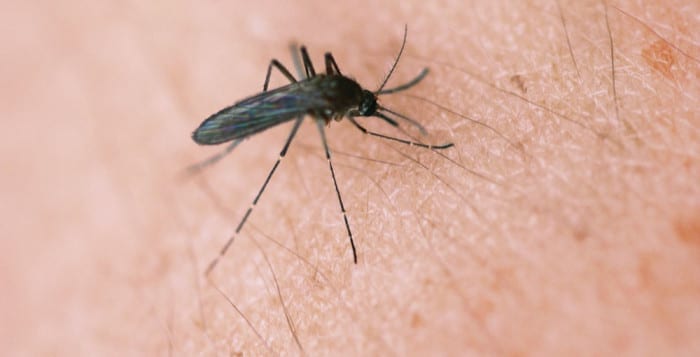Thirteen more mosquito samples have tested positive for West Nile virus in Suffolk County, bringing the total this year to 192, according to Dr. James L. Tomarken, the county’s health commissioner.
The samples were collected from Sept. 15 through Sept. 17, from the following areas: three from West Babylon, one from North Patchogue, one from Selden, one from Patchogue, one from Port Jefferson Station, one from Setauket, one from South Huntington, one from Bay Shore, one from Islip, one from Holbrook and one from Smithtown.
One human has tested positive for West Nile this year. The 55-year-old man from the Town of Islip was admitted to a local hospital in late August upon experiencing symptoms consistent with the virus, according to a Suffolk County Department of Health Services statement on Sept. 11.
The virus, first detected in birds and mosquito samples in Suffolk County in 1999 and again each year thereafter, is transmitted to humans by the bite of an infected mosquito.
“The confirmation of West Nile virus in mosquito samples indicates the presence of West Nile virus in the area,” Tomarken said. “While there is no cause for alarm, we urge residents to cooperate with us in our efforts to reduce the exposure to the virus, which can be debilitating to humans.”
To reduce the mosquito population around homes, residents should try to eliminate stagnant water where mosquitoes breed. Other tips include disposing of tin cans, plastic containers, ceramic pots or similar water-holding containers; removing discarded tires on the property; making sure roof gutters drain properly, and cleaning clogged gutters; turning over plastic wading pools and wheelbarrows when not in use; changing the water in birdbaths; cleaning vegetation and debris from the edges of ponds and keeping shrubs and grass trimmed; cleaning and chlorinating swimming pools, outdoor saunas and hot tubs; and draining water from pool covers.
Most people infected with West Nile virus will experience mild or no symptoms, but some can develop severe symptoms including high fever, headache, neck stiffness, stupor, disorientation, coma, tremors, convulsions, muscle weakness, vision loss, numbness and paralysis, according to Dr. Tomarken. The symptoms may last several weeks, and neurological effects may be permanent. Individuals, especially those 50 years of age or older, or those with compromised immune systems, who are most at risk, are urged to take precautions to avoid being bitten by mosquitoes.
There are a number of ways to avoid mosquito bites. Residents are advised to minimize outdoor activities between dusk and dawn; wear shoes and socks, long pants and long-sleeved shirts when outdoors for long periods of time or when mosquitoes are more active; use repellent; and make sure all windows and doors have screens.
To report mosquito problems or stagnant pools of water, call the Suffolk County Department of Public Works’ Vector Control Division at 852-4270.
For medical questions related to West Nile virus, call 854-0333.
To learn more about how mosquitoes are captured and tested for mosquito-borne diseases in Suffolk County, visit https://www.youtube.com/watch?v=EtaO-GkF8Yc
To learn more about how mosquitoes are prepared for West Nile virus testing, visit https://www.youtube.com/watch?v=ebOvsdiln-8.
For further information on West Nile virus, visit the Department of Health Services’ website: https://www.suffolkcountyny.gov/Departments/HealthServices/PublicHealth/PreventiveServices/ArthropodborneDiseaseProgram/PreventingMosquitoBorneIllnesses.aspx





